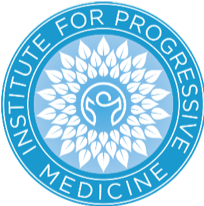
What is perineural injection therapy?
Perineural injection therapy (PIT) is a treatment for inflamed nerves. It uses a weak solution of dextrose to calm down inflamed or injured nerves. It is used on chronic and acute injuries to promote healing.
How does it work?
Low concentrations of dextrose act directly on the nerve membranes to immediately calm down nerve inflammation. This not only relieves pain, but allows the nerve to function better and heal underlying injuries. All injuries, whether related to nerves, muscles, tendons or joints have some component of nerve dysfunction. Treating the superficial and deep nerves related to the underlying injury can help speed healing and calm down pain.
What types of conditions can be treated?
PIT may be helpful in nerve inflammatory conditions such as carpal tunnel syndrome, complex regional pain syndrome, trigeminal neuralgia and sciatica. Areas typically treated include the nerves in the arms, legs, back and face. Additionally, the therapy may assist healing of common musculoskeletal conditions such as tennis elbow, golfer’s elbow, Achilles tendon injuries, rotator cuff problems, osteoarthritis, back pain, neck pain, whiplash, ankle sprains, hamstring injuries, plantar fasciitis, TMJ dysfunction, degenerative spine disease, trigger points, migraine headaches and many other acute and chronic pain conditions.
What is the injection procedure?
A small needle is used to administer the solution along the paths of superficial nerves. Several points along the nerve are treated and a typical treatment session may consist of only a few or as many as 20-30 very small injections. Occasionally, it is necessary to treat larger, deeper nerves and this is done under ultrasound guidance.
What can I expect after the procedure?
Many people report partial or full immediate relief of pain within 15-30 min following the procedure. However, this is not the case in all patients and occasionally one will experience increased soreness for 1-2 days following the procedure. Some patients describe the injection site as feeling numb following the procedure, although no anesthetic is used. Pain relief after the first procedure typically lasts hours-days and when the pain returns, the second treatment session will be administered.
What else can I expect during the treatment course?
A typical treatment course would consist of 4-6 treatment sessions, typically done 1 week apart. Occasionally, more sessions are required to fully heal the injury. Pain relief typically lasts longer and longer after each successive treatment session until it is finally relieved permanently. Often, other therapies will be recommended concurrently or in addition to PIT, such as prolotherapy, PRP or stem cells to provide the best chance of healing fully. Additionally, you may undergo further testing for nutritional or hormonal deficiencies that often lead to chronic neurological pain. Complimentary therapies such as ozone, chelation and supplements may also be suggested as they can improve the healing potential as well.
What medications will I be able to take during the treatment course?
If doing PIT as a solo therapy, you may continue all your usual medications. If PIT is in addition to other therapies, please refer to those therapies specifically for medication restrictions.
What are the risks to this procedure?
This injection is a very safe procedure as the areas injected and the solution used are very safe themselves. However, as with any injection, there are certain risks. Infection, bleeding, bruising and increased pain are the main risks. For deeper injections, the needle may be close to sensitive structures and for this reason there is a risk of nerve or arterial injury, lung penetration leading to pneumothorax (possibly requiring hospitalization) or spinal column penetration, leading to spinal cord damage or spinal headache. There is always a risk of allergic reaction if you are sensitive to dextrose or sodium bicarbonate. Please let us know in advance if you are on blood thinners or if you have allergies to fish, corn, sugar, anesthetics, latex or painkillers.
When can I return to work/exercise?
If you have taken medication for anxiety, you will require a driver to/from the appointment and may not be able to return to work that day. Otherwise, you will be able to return to work the same day. There are no restrictions on activity or exercise with PIT.
What are the chances that my pain will improve?
Most pain conditions will be at least partially relieved by PIT. However there are some patients that do not respond to this therapy. If there is no response by the 3rd treatment, an alternative therapy will be suggested. Patients have reported that PIT has relieved pain in both acute and chronic injuries, including aborting migraine headaches.

Institute for Progressive Medicine
4 Hughes 175 Irvine, CA 92618 Tel. (949) 600-5100
www.iprogressivemed.com
